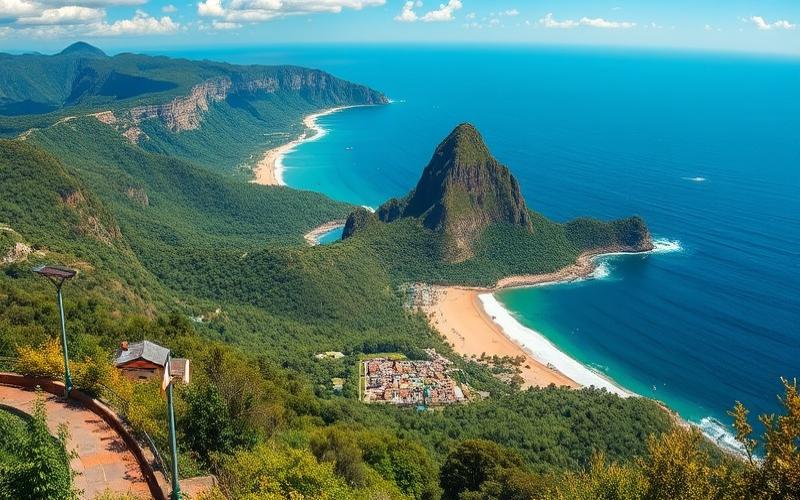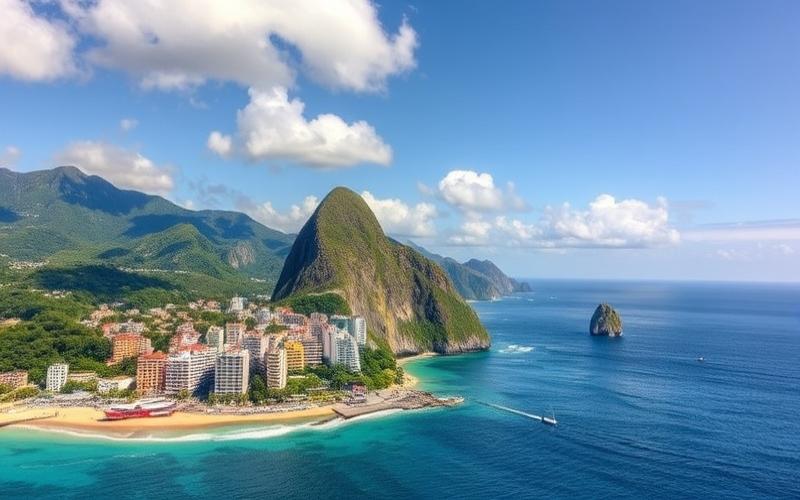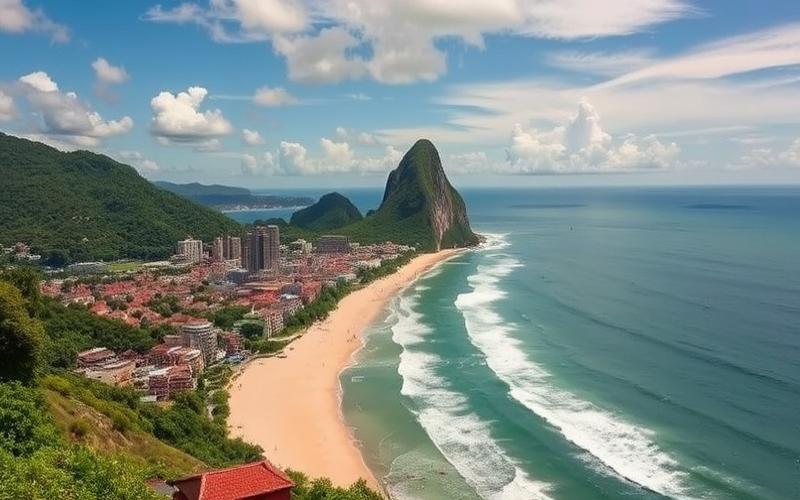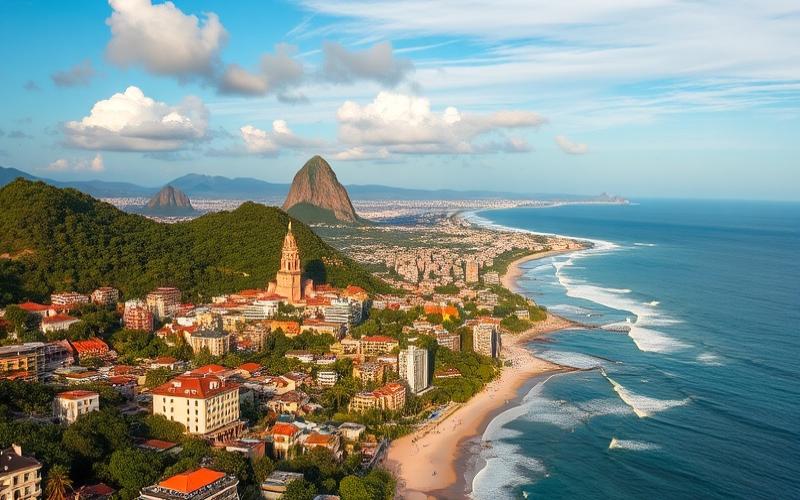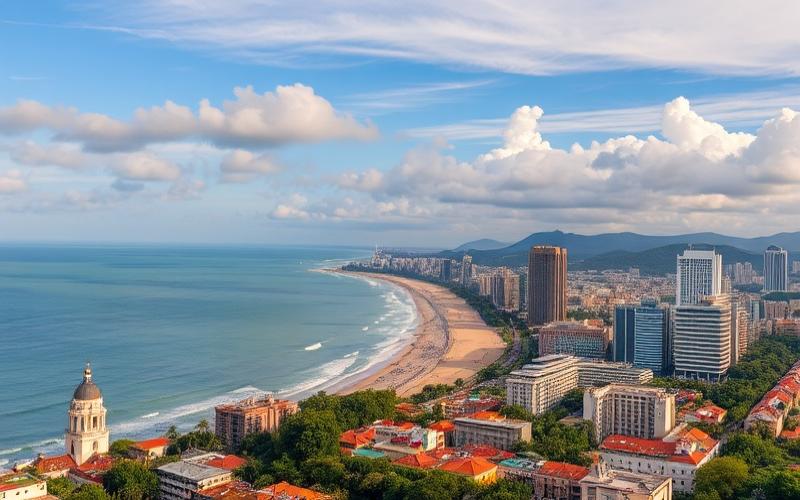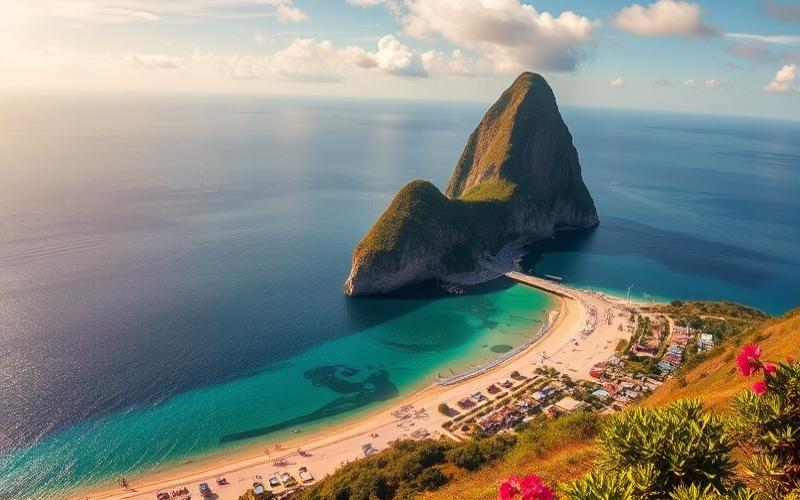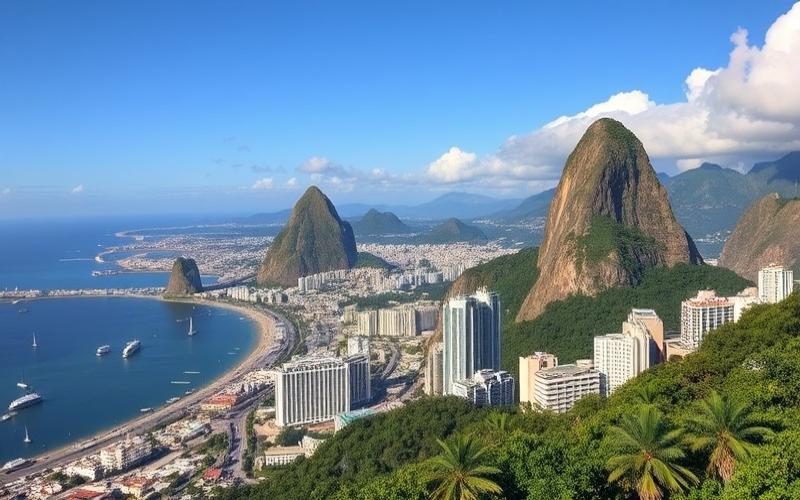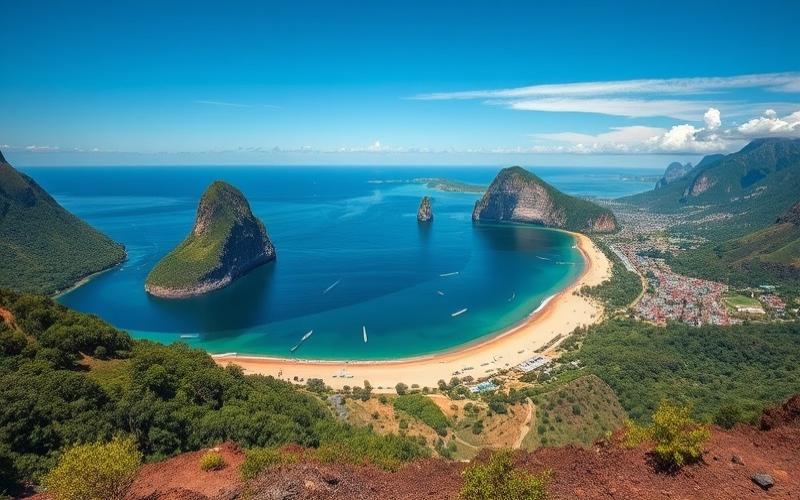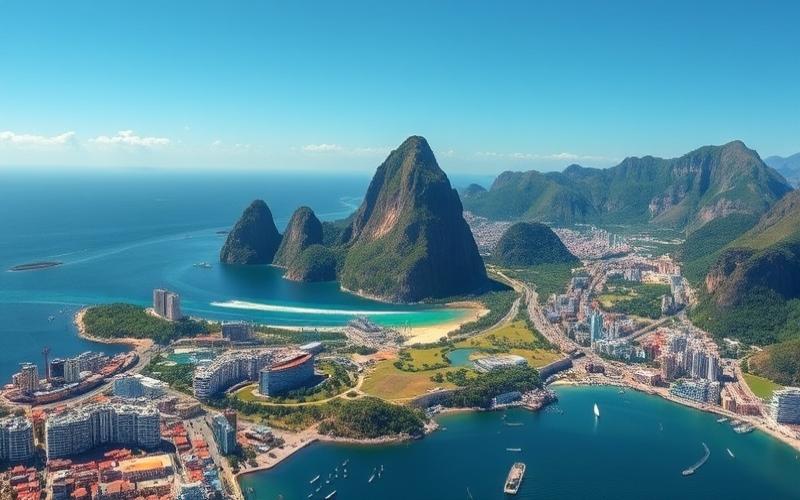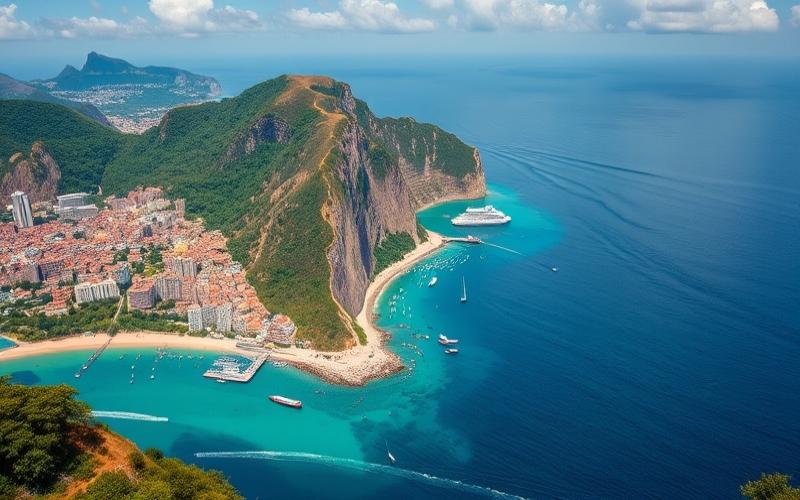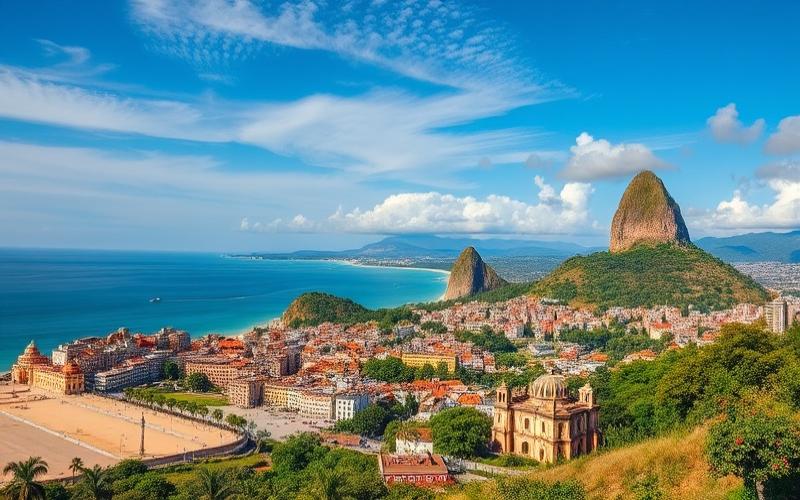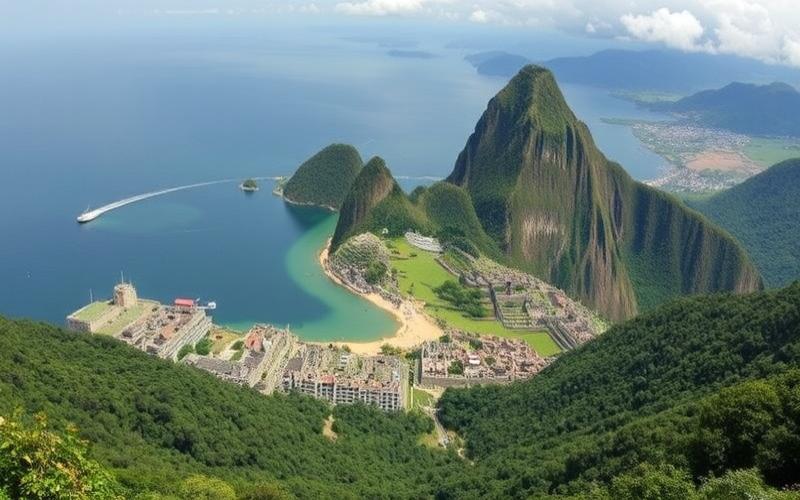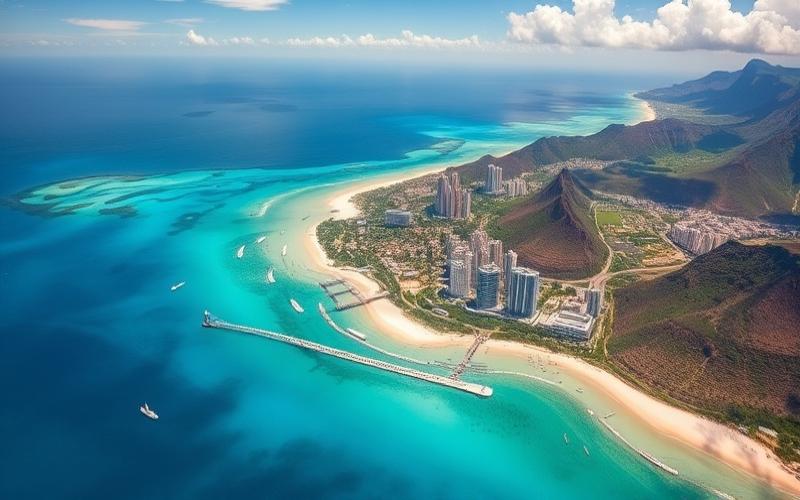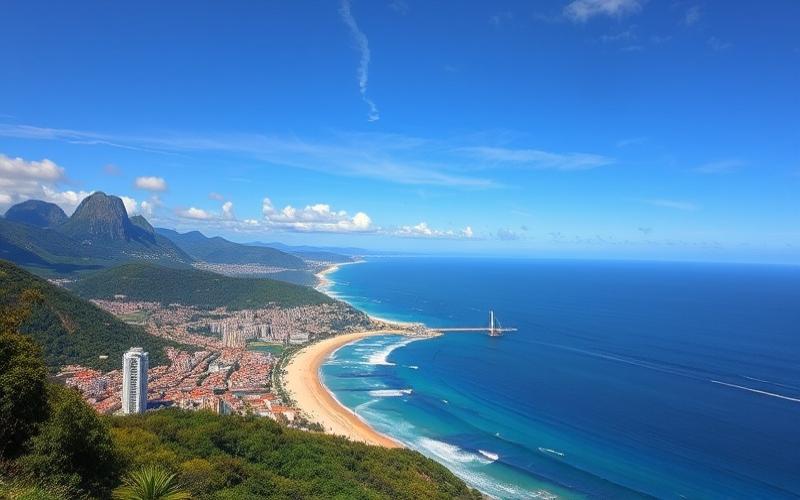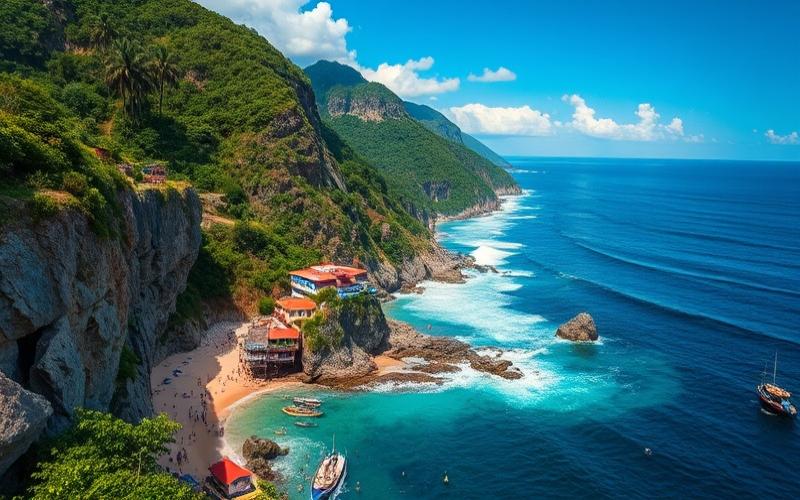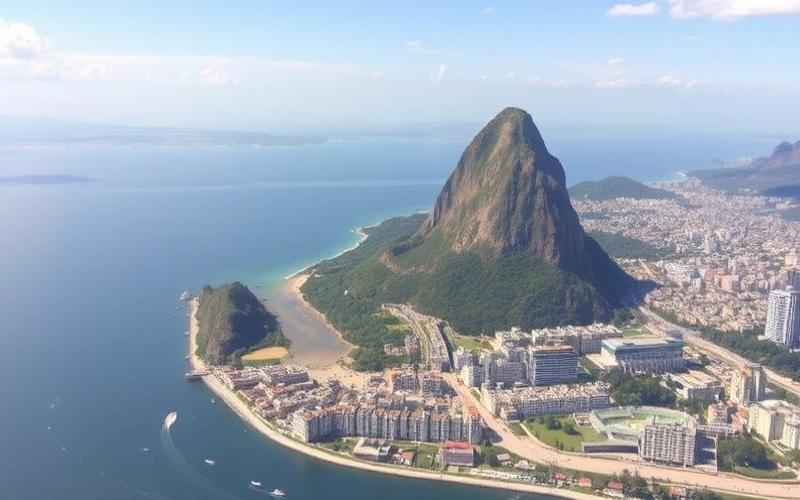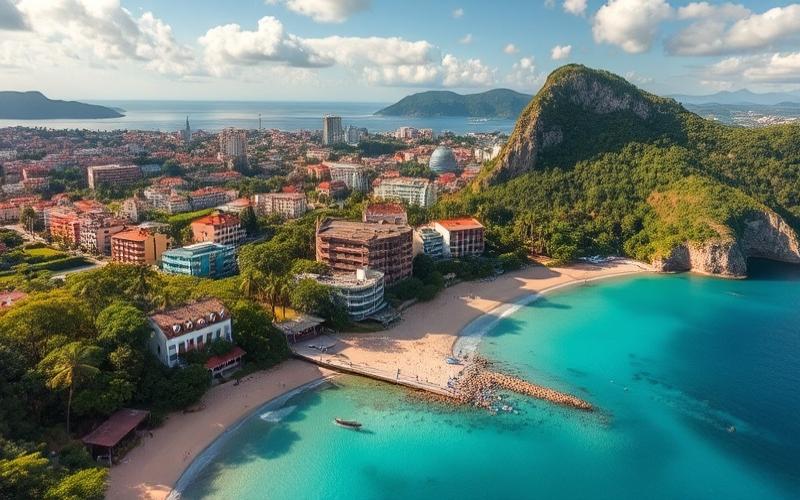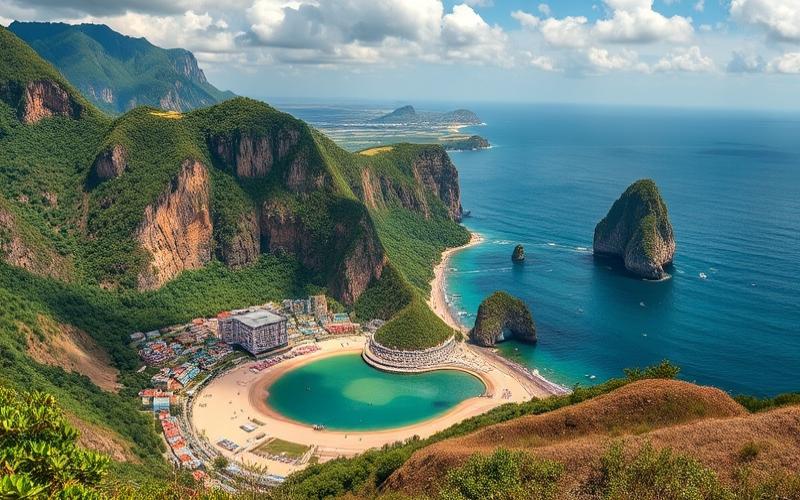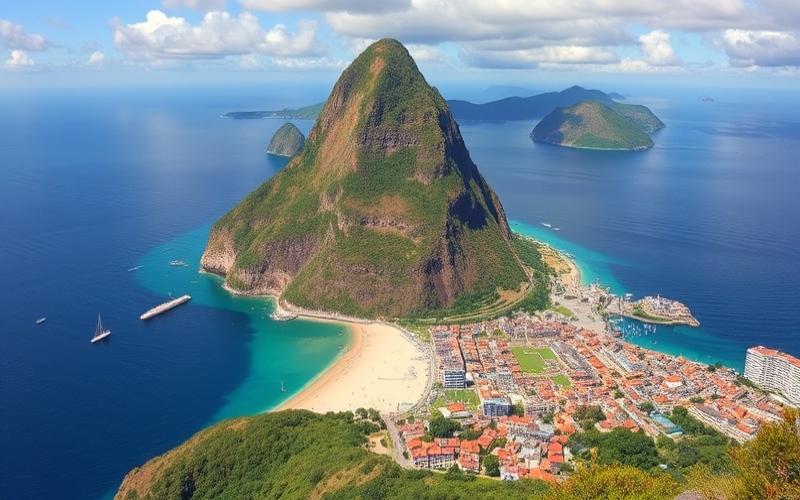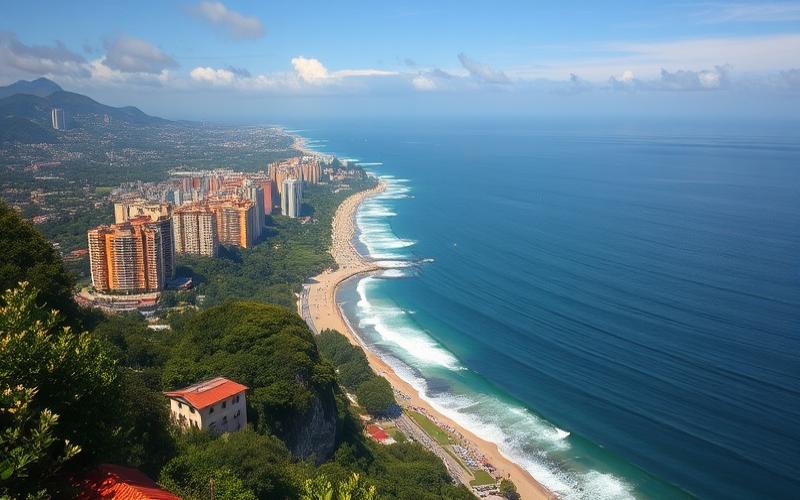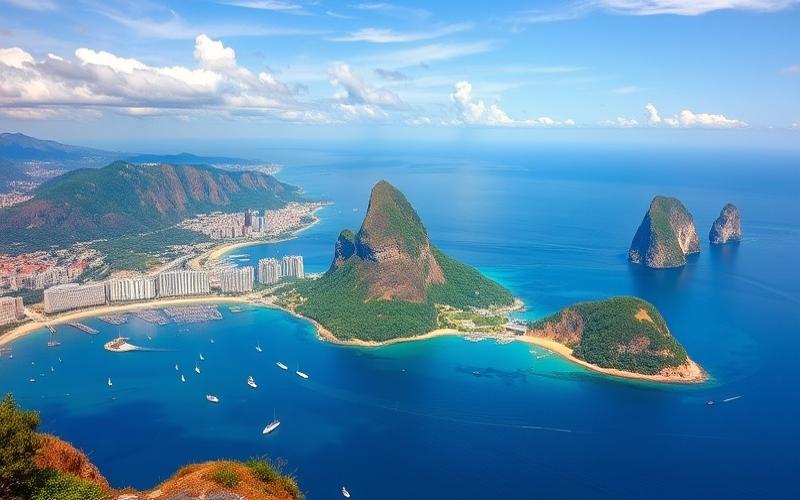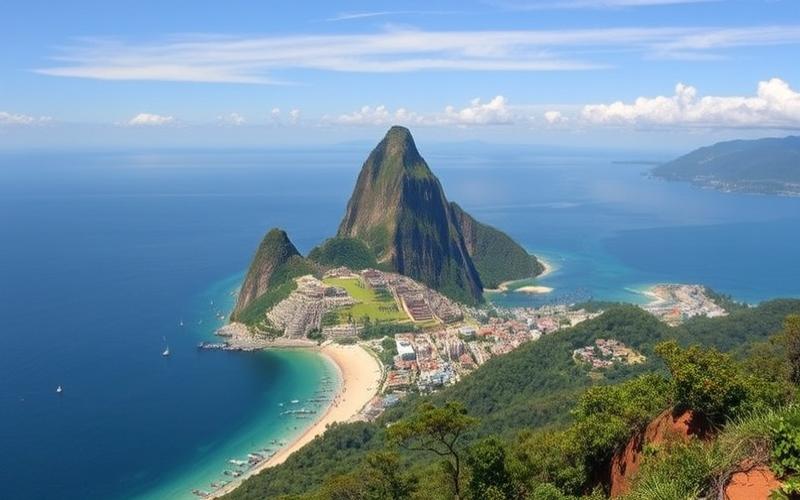
 Published on and written by Cyril Jarnias
Published on and written by Cyril Jarnias
Brazil, with its exotic landscapes and vibrant culture, is attracting an increasing number of international retirees seeking a new life under the sun. This country offers not only a dynamic and warm lifestyle but also attractive tax benefits that appeal to those looking to maximize their retirement income. With a relatively low cost of living and rewarding quality of life, Brazil presents itself as an enticing option for those wishing to combine tranquility and adventure.
Promoting Brazil as a Retirement Destination
Brazil attracts foreign retirees through its cultural riches, tropical climate, and diverse landscapes ranging from paradise beaches to lush mountains and forests. Cities like Rio de Janeiro, Florianópolis, or Salvador each offer a unique atmosphere: dynamic urban life, beachside ambiance, or immersion in vibrant cultural blending.
- Pleasant climate year-round: tropical or subtropical depending on the region.
- Plurality of landscapes: beaches, Amazon forests, green mountains.
- Intense cultural life: music (samba, bossa nova), varied local cuisine, popular festivals.
Accessible Quality of Life
The quality of life in Brazil is known for being accessible:
- Affordable cost of living compared to Europe or North America.
- Access to strong medical services with modern private hospitals (especially in São Paulo and Rio).
- Relaxed pace of life conducive to well-being; numerous natural spaces promote an active yet serene retirement.
| Aspect | Advantage | Detail |
| Cost of Living | Affordable | Cheaper housing, food |
| Health | Accessible Services | Reputable private clinics |
| Lifestyle | Relaxing | Outdoor activities and varied leisure |
Tax and Administrative Benefits
On the tax and administrative front:
- No wealth tax.
- Progressive tax scale with favorable rates for modest incomes.
- Franco-Brazilian convention avoiding any double taxation on pensions paid from abroad.
- Bilateral agreement allowing the totalization of contribution periods in France and Brazil to optimize pension rights calculation.
Government Initiatives
Brazilian authorities have implemented certain measures to encourage the settlement of foreign seniors:
- VIPER visa adapted for retirees proving stable income (facilitates permanent residence).
Social Dimension and Integration
The social dimension also plays a major role in choosing Brazil as a retirement destination:
- Warm welcome from locals facilitating rapid integration.
- Possibility to easily join local sports clubs, cultural associations, or international groups.
- Wide range of cultural activities (dance, live music), local crafts, and traditional festivals enriching daily retirement life.
Brazilian hospitality strongly contributes to the sense of well-being among expatriates.
Many French-speaking communities allow friendly exchanges among expatriates.
Thus, Brazil combines pleasant climate, moderate daily costs, specific tax benefits for foreign seniors, and a social environment conducive to a fulfilling retirement.
Good to Know:
Brazil attracts retirees thanks to its varied landscapes, interesting tax benefits for foreigners, and an affordable quality of life with accessible health services; the tropical climate and warm welcome facilitate integration into local and expatriate communities, enriched by a vibrant culture.
Cost of Living for Retirees in Brazil
The cost of living for retirees in Brazil varies greatly depending on the region, lifestyle, and housing choice. The average monthly budget ranges between 2,000 and 4,000 BRL for a comfortable life, approximately 350 to 700 €, but in large cities like São Paulo or Rio de Janeiro, a higher budget is needed compared to rural or coastal areas.
| Expense Item | Major Cities (€/month) | Rural/Coastal Areas (€/month) |
| Housing | 350 – 500 | 150 – 300 |
| Food | 125 – 145 | ~100 |
| Health | variable | variable |
| Transportation | ~40 | ~25 |
| Leisure | ~50 | ~30 |
Housing
Renting an apartment in the city center often costs between 1,200 and 2,500 BRL (210 to 440 €). In the outskirts or less touristy coastal areas, rent can drop below 800 BRL (140 €).
Buying property is accessible in some regions with prices up to two times lower than in metropolitan areas. Additional costs are moderate compared to Europe.
Many retirees prefer renting for more flexibility in the face of real estate market fluctuations.
Food
Local products are very affordable; monthly groceries vary between 125 and 145 €, with the possibility to save up to 30% by favoring markets (feiras) over supermarkets.
Meal at a local restaurant: simple lunch around 4.50 to 6 €, full dinner for two about 22 €.
Health
The public system is free but sometimes saturated; many opt for private health insurance, the cost of which depends heavily on medical profile and can represent a significant expense.
Generic medications remain affordable; private consultations generally range around 20–35 € depending on the region.
Transportation
Monthly public transport pass: about 230 BRL (~40 €).
Taxis and ride-sharing are cheap compared to Europe; average urban trip under 5–8 €.
Leisure & Culture
Cinema: ticket around 3–5 €.
Basic gym membership from 20 €/month.
Many free activities on the beach or outdoors.
Common Housing Options
- Long-term rental
- Purchase of a small individual property
- Senior residence (rare but exist)
These choices directly influence the monthly budget: buying often reduces the housing share after a few years while renting offers flexibility against the local market.
Regional Impact
Major cities show significantly higher costs on all these items compared to rural areas where it remains possible “to live comfortably with less,” some retirees testify that with “1,000 €/month they fully enjoy the climate without sacrificing their quality of life.” On the northeastern coast especially, simple houses can be found from “70,000 €, close to the beach.”
Inflation
Brazil regularly experiences inflation higher than European countries. For retirees on fixed income, this implies increased vigilance regarding daily expenses. According to several recent studies, annual inflation frequently oscillates between 4% and 7%, mainly affecting food and transportation. Testimonies indicate that “you need to readjust your basket each year” but that “savings on housing generally compensate.”
Testimonials
“We chose Natal because everything is cheaper here than in Rio… With our French pensions, we live much better here.”
“By buying our house outside the urban center, we divided our housing budget by three.”
“The regular price increase sometimes forces us to review our restaurant outings or paid leisure… But we largely compensate thanks to the very low cost of fresh local fruits!”
Practical Tips
- Prefer small coastal towns if seeking economy & calm
- Always compare health insurance before definitive settlement
- Plan annual budget margin (+5%) related to local inflation
- Use local markets (feiras) to reduce food expenses
Purchasing power remains attractive in Brazil despite sustained inflation, especially thanks to low housing costs outside major urban areas. A European pensioner can hope to maintain or even improve their quality of life while keeping rigorous management of food and health budgets.
Good to Know:
The cost of living in Brazil varies considerably: for example, housing in Rio de Janeiro can cost up to 60% more than in a rural region. Retirees on fixed income must account for inflation, which recently increased by 7%, particularly impacting health and food expenses.
Tax Benefits Offered to Retirees in Brazil
Specific Tax Benefits for Retirees in Brazil
- Partial income tax exemption for pensions
Permanent resident retirees in Brazil benefit from an income tax exemption for pensions up to a certain threshold. Tax brackets are progressive, starting with a 0% bracket for incomes below 17,208 reais annually.
Beyond this threshold, the following brackets apply:
| Annual Income (in reais) | Tax Rate |
|---|---|
| Up to 17,208 | 0 % |
| 17,209 to 25,800 | 7.5 % |
| 25,801 to 34,392 | 15 % |
| 34,393 to 42,984 | 22.5 % |
| More than 42,985 | 27.5 % |
- Absence of wealth tax
There is no wealth tax in Brazil, representing a significant advantage compared to many European countries.
- Exemption or reduction of IPTU (urban property tax) for elderly persons
Many Brazilian municipalities grant total or partial IPTU exemptions to elderly homeowners of their primary residence, subject to certain conditions:
- Be over 60 years old
- Use the property as primary residence
- Capped monthly income (varies by city, often around 2 to 3 times the minimum wage)
- Be the sole owner of the property
These criteria can vary according to municipal legislation.
- Other tax measures for retirees
- Flat-rate deduction on certain incomes
- Tax treaty with several countries (notably France), avoiding double taxation on private pensions: the pension is taxed only in the country of fiscal residence, generally more favorable than the country of origin.
Eligibility Criteria
- Be a tax resident in Brazil (justify a permanent or long-term visa)
- Have the legal retirement age (generally from 60 years to benefit from age-related advantages)
- Respect income caps for certain exemptions (notably for IPTU)
- For foreigners: provide proof of regular income (minimum 6,000 reais/month for retiree visa)
Comparison with Other Countries
| Country | Tax Rate on Pensions | Exemption/Deduction | Wealth Tax | IPTU/Property Tax Exemption for Seniors |
|---|---|---|---|---|
| Brazil | 0 % to 27.5 % | Yes, low brackets | No | Yes, under local conditions |
| France | 11 % to 45 % | Limited | Yes | No (no generalized exemption) |
| Portugal | 10 % (for NHR) | Yes (NHR status) | No | Yes, in some cases |
| Spain | 19 % to 47 % | No | Yes | Sometimes, depending on region |
Key Points to Remember
- Brazil offers a relatively advantageous tax system for retirees, with broad exemption on low incomes, no wealth taxation, and significant property tax reductions for seniors.
- Eligibility criteria are mainly age, tax residence, and compliance with certain income caps.
- Comparatively, Brazil offers tax conditions often more favorable than France or Spain, notably thanks to the absence of wealth tax and local IPTU exemptions for elderly persons.
Note: Rules can vary by municipality for IPTU, and it is recommended to verify specific conditions with the city hall of the residence location.
Good to Know:
Retirees in Brazil benefit from income tax exemptions for their pensions up to a certain threshold, as well as IPTU reductions for elderly persons meeting specific income conditions, advantages not always available in countries like the United States.
Disclaimer: The information provided on this website is for informational purposes only and does not constitute financial, legal, or professional advice. We encourage you to consult qualified experts before making any investment, real estate, or expatriation decisions. Although we strive to maintain up-to-date and accurate information, we do not guarantee the completeness, accuracy, or timeliness of the proposed content. As investment and expatriation involve risks, we disclaim any liability for potential losses or damages arising from the use of this site. Your use of this site confirms your acceptance of these terms and your understanding of the associated risks.

